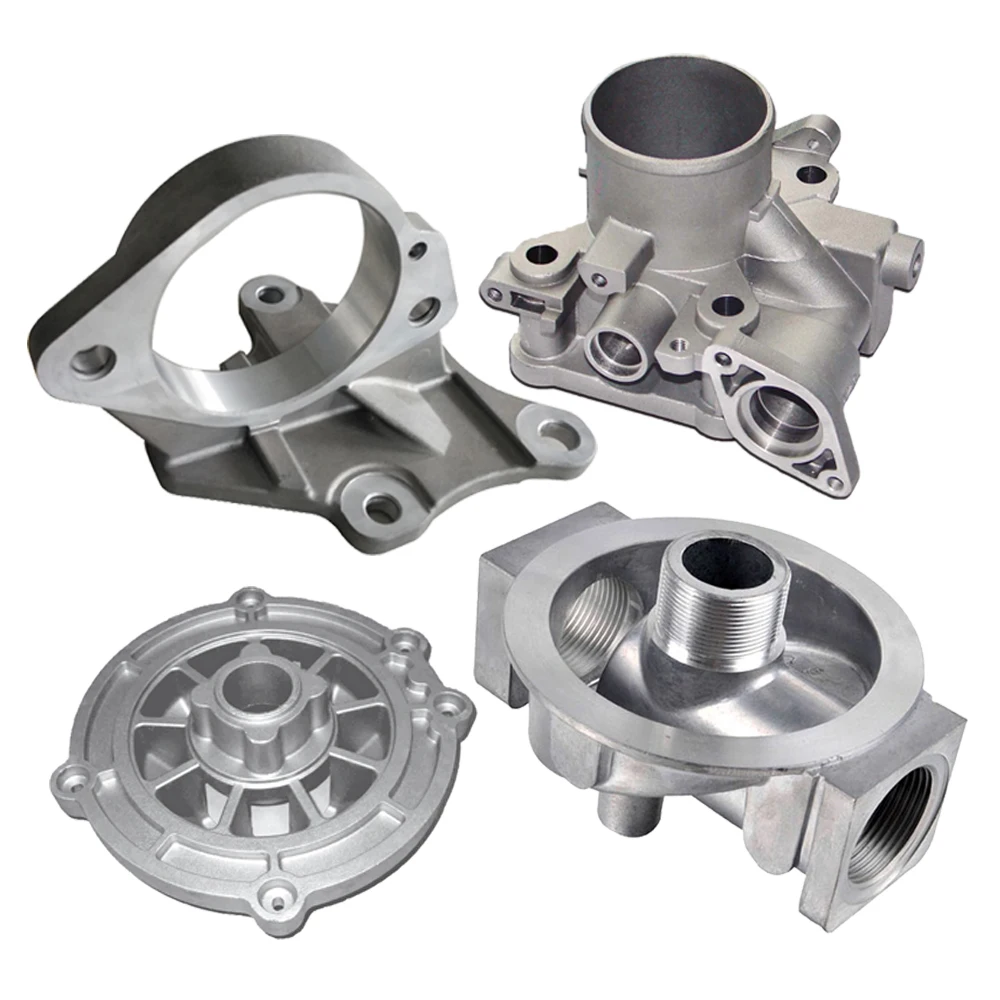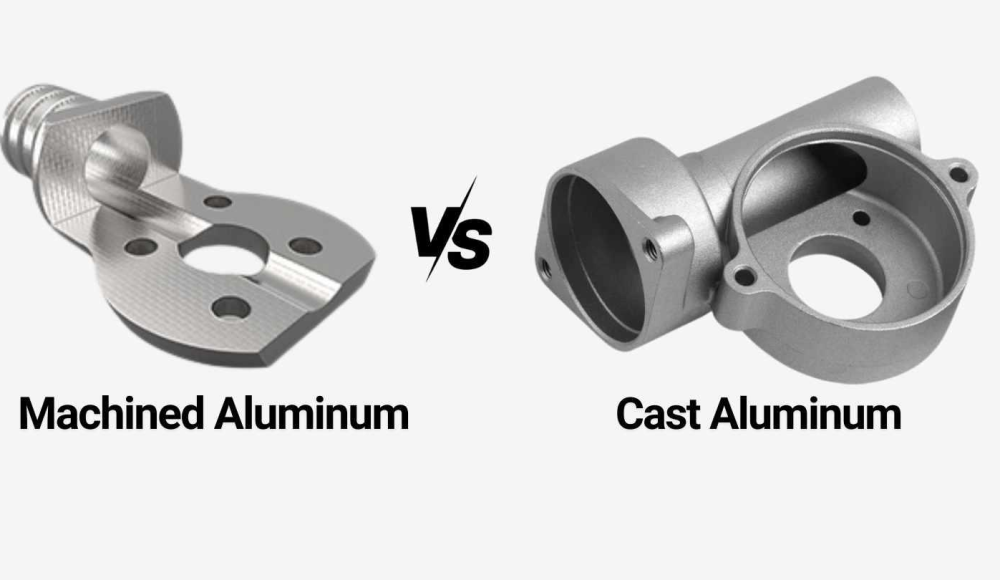Tips for selecting a trusted Aluminum Casting Company with experience
How Light Weight Aluminum Foundries Add To Different Industries: A Comprehensive Review
Light weight aluminum factories act as vital distributors throughout several industries, consisting of automobile, aerospace, building, and electronics. They generate elements that are not just lightweight however also resilient, enhancing the performance of various items. With sophisticated casting strategies and a commitment to sustainability, these factories are adjusting to meet progressing market needs. As they introduce, the effect of light weight aluminum castings on different applications raises crucial concerns regarding the future of manufacturing. What lies ahead for this vital industry?
The Function of Aluminum Foundries in the Automotive Sector
As the vehicle sector progressively embraces light-weight materials to improve fuel performance and performance, light weight aluminum foundries play an important role in this evolution. These facilities specialize in the production of light weight aluminum castings, which are important elements in contemporary lorries. By offering high-strength, lightweight components, light weight aluminum shops allow producers to lower the overall weight of vehicles, ultimately bring about improved fuel economy and reduced emissions.
Aluminum's resistance to corrosion further improves vehicle longevity, making it an eye-catching option for automakers. Foundries use advanced strategies such as die spreading and sand spreading to create precise and complex parts, ensuring that they satisfy stringent industry criteria. Furthermore, the capacity to reuse light weight aluminum successfully adds to an extra lasting production process. As the vehicle industry remains to innovate, aluminum shops will stay essential in delivering the materials required for the future generation of vehicles, supporting both performance and environmental objectives.

Aerospace Applications of Light Weight Aluminum Castings
Light weight aluminum castings are indispensable to the aerospace market, using a mix of light-weight toughness and resilience that is vital for aircraft performance. These spreadings are used in different elements, such as engine components, architectural frames, and touchdown equipment, where weight decrease is critical for fuel performance and total safety and security. The convenience of aluminum enables for intricate geometries that improve aerodynamic efficiency while maintaining architectural integrity.
Additionally, innovations in casting innovations have actually boosted the precision and surface coating of light weight aluminum parts, lowering the demand for substantial post-processing. This effectiveness not only increases manufacturing timelines yet likewise reduces prices, making light weight aluminum an attractive choice for makers. The rust resistance of aluminum assurances long life and dependability in rough operating environments, additionally establishing its duty in aerospace applications. As the market progresses, light weight aluminum castings continue to be an important material, driving technology and sustaining the growth of next-generation airplane.
Building And Construction Sector Advancements Via Light Weight Aluminum
The building market has significantly embraced aluminum as a result of its light-weight properties and adaptability, paralleling its successful applications in aerospace. Developments in aluminum design have actually led to more powerful, more efficient structures, making it possible for home builders and architects to check out new possibilities. The product's resistance to corrosion and reduced upkeep needs make it specifically appealing for both domestic and commercial jobs.
Light weight aluminum's versatility promotes the development of detailed styles, permitting visual improvements that were previously tough with conventional materials. Prefabrication strategies have additionally advanced, utilizing aluminum to lower building time and expenses significantly. Additionally, the energy effectiveness of light weight aluminum systems-- such as home window structures and roof covering-- contributes to sustainable structure methods, straightening with modern-day environmental requirements. As the building and construction sector remains to welcome these innovations, aluminum's role is expected to increase, driving more technology and adding to the growth of durable infrastructures.
Electronics and the Need for Lightweight Aluminum Components
With the quick advancement of innovation, the demand for lightweight light weight aluminum parts in the electronic devices industry has actually risen. As devices end up being extra mobile and compact, producers seek materials that use both longevity and weight decrease. Light weight aluminum, with its excellent strength-to-weight proportion, has actually arised as a favored choice for elements such as look at this web-site housings, heat sinks, and structural assistances.
Using light weight aluminum not only boosts item performance however likewise adds to power effectiveness, as lighter devices call for less power during procedure. In addition, aluminum's excellent conductivity makes it optimal for digital applications, guaranteeing effective warm dissipation and lessening the risk of overheating.
As customer preferences shift towards light-weight and streamlined gadgets, light weight aluminum shops play an important role in satisfying the developing demands of the electronics industry (Precision aluminum casting). Their capacity to produce accurate and top quality light weight aluminum components supports development, allowing makers to press the boundaries of layout and functionality
Lasting Practices in Light Weight Aluminum Foundries
As the electronics industry significantly prioritizes sustainability, light weight aluminum foundries are adjusting their practices to straighten with these environmental goals. Numerous factories are applying reusing programs that recover light weight aluminum scrap, substantially decreasing the demand for raw products and lessening waste. By utilizing energy-efficient innovations, these facilities are reducing their carbon impact; for circumstances, utilizing electrical heating systems rather of conventional gas-fired ones can lead to substantial power cost savings.
Furthermore, light weight aluminum factories are buying water conservation measures, such as closed-loop systems that reuse water used in cooling procedures. These techniques not just reduced water usage but additionally alleviate the ecological effect related to wastewater discharge. In addition, several shops are exploring renewable energy resources, such as solar and wind power, he has a good point to fulfill their power requires sustainably. Through these campaigns, light weight aluminum factories exemplify a commitment to environmental stewardship while proceeding to satisfy the needs of the electronic devices sector.
Future Fads in Light Weight Aluminum Foundry Technologies
Emerging technologies are positioned to transform aluminum foundries, boosting effectiveness and item quality while advancing sustainability initiatives. Developments such as expert system and machine discovering are expected to maximize production procedures by anticipating equipment failures and enhancing source allotment. The integration of innovative robotics will certainly enhance procedures, minimizing labor costs and lessening human mistake.
Additive production, or 3D printing, is likewise acquiring grip, allowing the manufacturing of complicated geometries that were previously unattainable with standard techniques. This shift can bring about substantial material financial savings and minimized waste. In addition, smart factories making use of IoT (Web of Things) innovations will enable real-time monitoring and information evaluation, promoting aggressive decision-making.
Last but not least, the fostering of cleaner melting technologies and recycling methods will certainly better decrease the environmental impact of light weight aluminum foundries, making them extra sustainable. Jointly, these patterns signal a future where light weight aluminum foundries can operate with better efficiency and responsibility.
Often Asked Concerns
What Are the Ecological Influences of Light Weight Aluminum Foundries?

Just How Do Foundries Ensure Quality Control in Aluminum Spreading?
Factories guarantee high quality control in aluminum casting by applying strenuous examination procedures, using sophisticated innovation, carrying out routine product testing, and adhering to market criteria, thereby preserving consistency and integrity in their ended up items. Aluminum Casting Company.
What Is the Average Lifespan of Light Weight Aluminum Cast Parts?
The ordinary life expectancy of aluminum cast components commonly ranges from 10 to half a century, depending upon factors such as ecological conditions, use, and maintenance. Proper treatment can significantly improve their toughness and performance in time.
Exactly How Are Aluminum Alloys Selected for Details Applications?
Aluminum alloys are selected based on variables such as strength, corrosion resistance, weight, and thermal conductivity. Designers review the particular demands of applications to identify one of browse this site the most suitable alloy for finest efficiency and sturdiness.
What Are the Safety And Security Rules for Light Weight Aluminum Factory Employees?
Safety and security regulations for aluminum factory workers include individual protective equipment requireds, air flow demands, exposure restrictions to dangerous products, and methods for handling molten steel. Compliance guarantees worker security and lessens health and wellness risks connected with factory procedures.
As the automobile sector progressively embraces light-weight materials to enhance fuel efficiency and performance, light weight aluminum shops play a critical duty in this development. As consumer preferences shift towards streamlined and lightweight devices, aluminum factories play a crucial role in fulfilling the progressing demands of the electronic devices industry. As the electronic devices market significantly focuses on sustainability, light weight aluminum foundries are adjusting their practices to align with these environmental goals. Numerous factories are applying recycling programs that reclaim aluminum scrap, considerably decreasing the need for raw products and reducing waste. Safety guidelines for aluminum factory workers include personal safety devices mandates, ventilation requirements, exposure restrictions to harmful products, and methods for managing liquified steel.